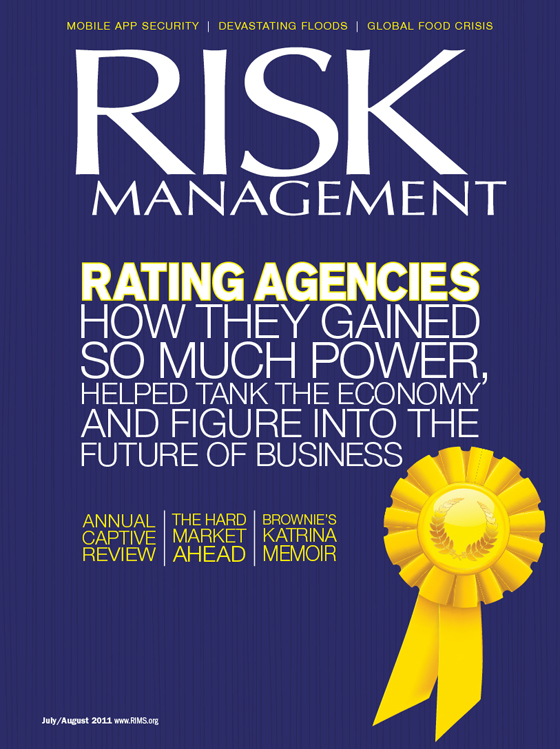That the world is getting riskier should be pretty obvious to anyone who has been paying attention since 9/11 kicked off a horrible decade that included Enron, Katrina, the Great Recession, the Gulf oil spill and whatever it is that is going on right now in Washington, London, Southern Europe and on Wall Street.
Nevertheless, Property Casualty 360 has asked 36 risk professionals to answer the question: “Is the World Becoming a Riskier or Safer Place?”
I haven’t read all of the responses yet, but I have talked with most of these people in the past so I presume the consensus agrees that the world is riskier now than ever before. (In a business sense anyway. Indeed, the MAD threat during of the Cold War era was pretty … umm … risky back then. Black Death was also a little scarier than anything I can think of.)
Carol Fox of RIMS had a good take on the question, which (not surprisingly given her role here at RIMS, which, if you didn’t know, is the organization that pays my salary) shows a more nuanced outlook that notes the strategic advantages that risks can provide.
There is much more uncertainty given the complexity and speed of change in today’s world than was the case 50, or even 20, years ago.
The key is to understand that risk isn’t only to be avoided or mitigated. Risks are to be understood in light of an organization’s objectives for their relevance, importance and certainty so that the known risks that can “improve our position” can be exploited, and those that can “worsen our position” can be managed. Those risks that are most uncertain, whether known or unknown, become the basis for scenario planning, so that the organization can consider them in light of its overall strategy, as well as its future resilience and sustainability planning.
As is too often forgotten, without risk, there would be not opportunity. If producing oil and distributing gasoline were risk-free endeavors, every company would be Exxon. If investing in the creation of revolutionary technology to leverage the death of non-digital music carried no downside, every company would be Apple.
Risk isn’t always bad for companies.
Head over to PC360 for the other 35 responses.


